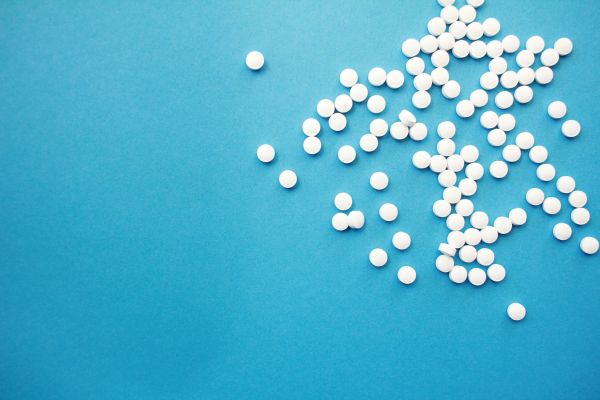Daily Management of ADHD
ADHD is a brain-based disorder that can’t be cured simply by adopting healthy habits. But that doesn’t mean that lifestyle changes don’t have a real, measurable benefit on ADHD symptoms in both children and adults.
In addition to a formal treatment plan—whether medications, therapy, or both—prioritizing adequate amounts of restful sleep, consistent exercise, mindfulness practices, and a nutritious diet can help those with ADHD reduce hyperactivity, improve focus, and even boost mood. What’s more, most of the lifestyle changes do more than target ADHD symptoms; they also promote overall physical and mental health, and (with the exception of certain supplements and dietary changes) come with minimal risks, side effects, or cost.
On This Page
- Does ADHD affect sleep?
- Is insomnia making my ADHD symptoms worse?
- Can meditation help with ADHD?
- Does exercise help treat ADHD?
- Can ADHD be treated with a healthy diet?
- Can certain foods make ADHD worse?
- Are food dyes bad for people with ADHD?
- Do supplements work for ADHD?
- What supplements are best for ADHD?
ADHD can interfere with sleep in a number of ways, including making it more difficult to fall asleep, stay asleep, or feel refreshed upon waking. Those with ADHD, particularly the hyperactive subtype, may be more likely to feel physically restless at bedtime and may find it more difficult to unwind at the end of the day; evidence suggests they may also have a higher risk of comorbid sleep disorders like sleep apnea. ADHD-related sleep problems affect both children and adults and can typically be treated with sleep hygiene practices, therapy, or (in extreme cases) medication.
Even in those without ADHD, fatigue can increase distractibility, make it harder to rein in impulses, and negatively affect cognition. In children and adults with ADHD, poor sleep can go further and exacerbate already existing symptoms of inattention or impulsivity. The relationship between ADHD and sleep problems is a widely debated chicken-or-egg; ADHD appears to increase the risk of chronic insomnia, and insomnia, in turn, can worsen ADHD symptoms. Indeed, some experts speculate that in some cases, what appear to be ADHD symptoms may in fact be the result of severe circadian rhythm dysfunction and fractured sleep. While addressing insomnia and related sleep problems won’t necessarily make ADHD symptoms disappear entirely, it is likely that getting more restful sleep can be an important piece of the ADHD treatment puzzle.
Some evidence does suggest that mindfulness meditation could help those with ADHD better focus their attention and regulate strong emotions. A small study from 2017, for instance, found that cognitive behavioral therapy that incorporated mindfulness meditation significantly reduced ADHD symptoms in adults; it also appeared to increase self-compassion and improve executive functioning. Another study, published in 2019, found that mindfulness appeared to help children with ADHD better regulate their emotions. In almost all cases, mindful meditation should be used to bolster a comprehensive treatment program, rather than as a standalone treatment.
Regular exercise is a critical component of anyone’s overall health, but it may be especially beneficial to those with ADHD. Exercise helps the brain produce key proteins and neurotransmitters, including dopamine and serotonin, that are critical to cognitive function and that are thought to be targeted by the medications used to treat ADHD. For those with hyperactive ADHD, exercise is useful for “releasing” excess energy and may help tame fidgetiness in settings where it could be seen as inappropriate. Finally, exercise is known to improve mood, reduce stress, and soothe anxiety—all of which can greatly improve well-being for an individual with ADHD.
There is some research suggesting that certain nutrients or overall diet plans can improve symptoms of ADHD, but the evidence that diet can be a standalone treatment is far from conclusive. Strict elimination diets—in which gluten, dairy, sugar, and most other foods were cut out entirely—appeared to significantly reduce symptoms in some small samples of children with ADHD.
What's more, some studies have shown that a Western diet—high in processed foods, sugar, and unhealthy fats—is associated with a greater risk of developing ADHD. Omega-3 fatty acids, found primarily in seafood, have also been linked to reduced ADHD symptoms in several studies. Eating a diet rich in whole foods, particularly fruits and vegetables, and low in processed food is likely to have health benefits; it may also, in some cases, reduce symptoms of ADHD.
Many parents suspect that certain foods—including eggs, dairy, sugar, or gluten—make their child more hyperactive, distracted, or irritable; adults may report similar experiences as well. But research on so-called “trigger foods” has not been extensive; though several studies have reported a positive effect of eliminating such foods from the diet of people with ADHD, they have had limitations and focused primarily on small samples.
Some clinicians recommend the elimination of certain foods to assess any changes in symptoms. But they caution that such diets require vigilance and can be challenging to maintain, particularly for parents, who may not be able to control all the food their child eats. Parents and adults are encouraged to consult their healthcare provider before embarking on a restricted diet to minimize risk and ensure that nutritional needs are met.
It’s possible that artificial food dyes and preservatives can exacerbate symptoms of ADHD, but the jury is still out. An influential review conducted in 2012 found that food dyes did appear to increase ADHD symptoms somewhat; some subjects saw a dramatic increase in symptoms after ingesting food dyes, implying that some people may be particularly sensitive to their effects. But the researchers caution that overall, the effects were small and may have been swayed by publication bias. On the other hand, some parents and adults report that eliminating food dyes has had a strongly positive effect on ADHD symptoms, and there is no health risk to eliminating artificial food dyes from one’s diet—though, like any strict elimination diet, it requires dedication and can be difficult to maintain.
Like other dietary interventions for ADHD, the evidence on supplements is mixed. Some dietary supplements, like omega-3s, magnesium, or zinc have been shown in some research studies to have positive effects on ADHD; in some cases, however, those findings have been called into question by poor study design, a lack of blinding, or small samples. Other supplements, like St. John’s Wort, are generally seen in research to be wholly ineffective against ADHD—and in fact, may interact dangerously with prescribed medications if taken inappropriately. It’s always best to disclose any supplements you take regularly to your doctor in order to monitor potential risks and/or side effects.
The most well-known supplement for treating ADHD—and arguably the most effective—are omega-3 fatty acids, also known as fish oil. Several studies have concluded that children with ADHD symptoms may have lower levels of omega-3s in their blood and that supplementation appears to improve symptoms with minimal side effects. Other supplements, like zinc, iron, or ginkgo, have also been shown to have beneficial effects, particularly for children or adults who are deficient in a particular nutrient. However, certain minerals—such as iron—can become toxic when taken in supplemental form; thus, it’s always best to check with a doctor before starting a supplement regimen and monitoring progress as needed.














